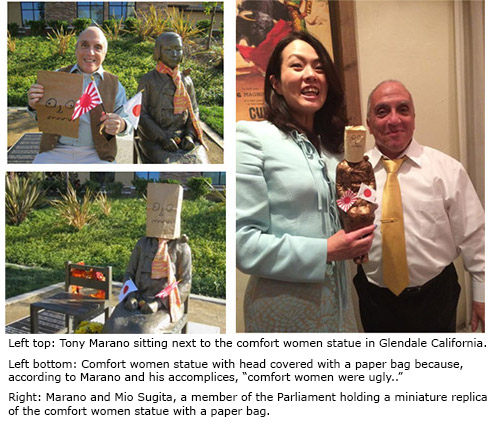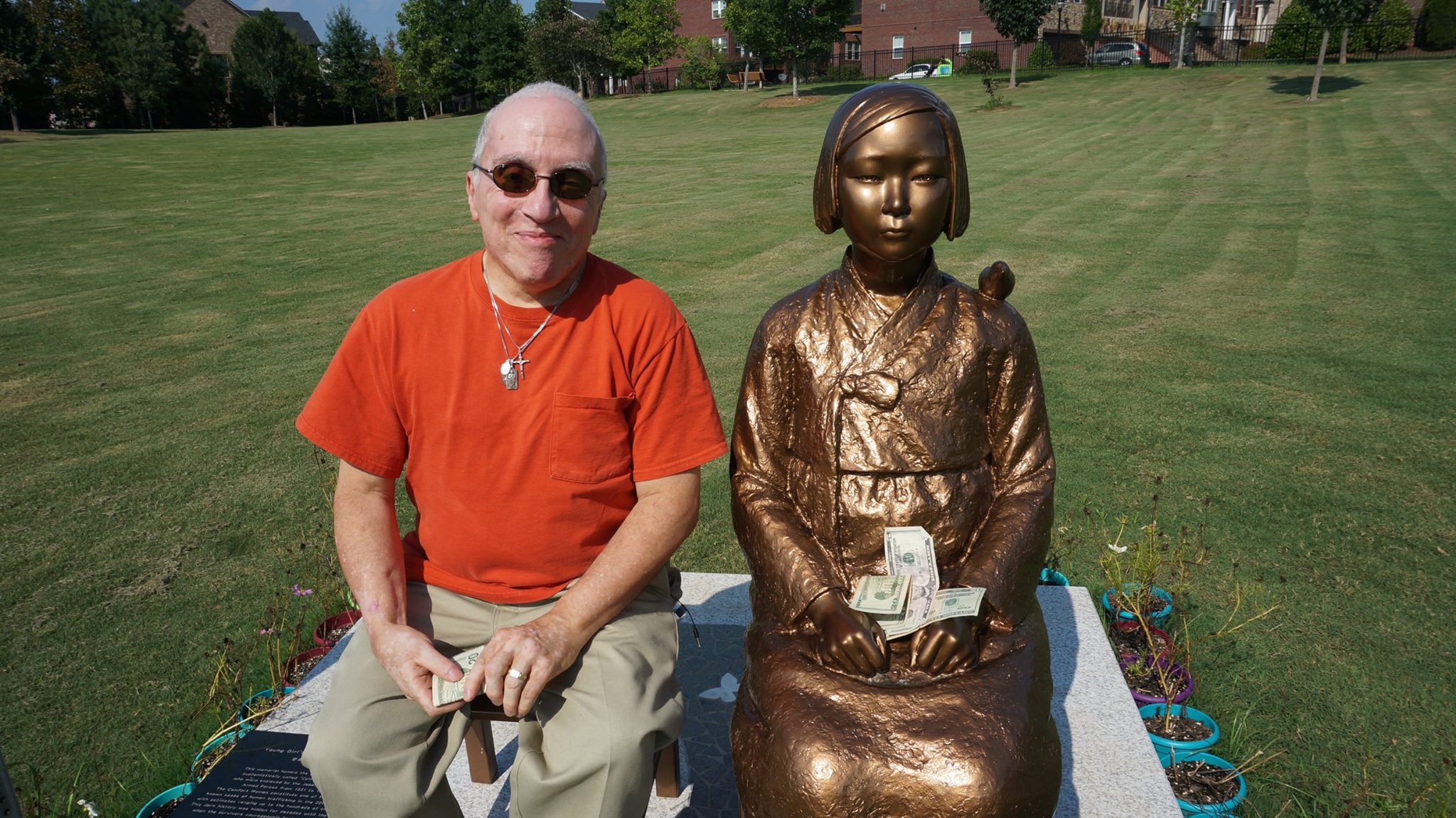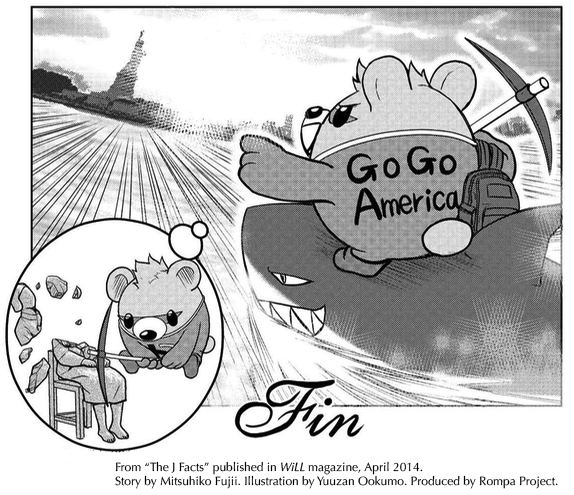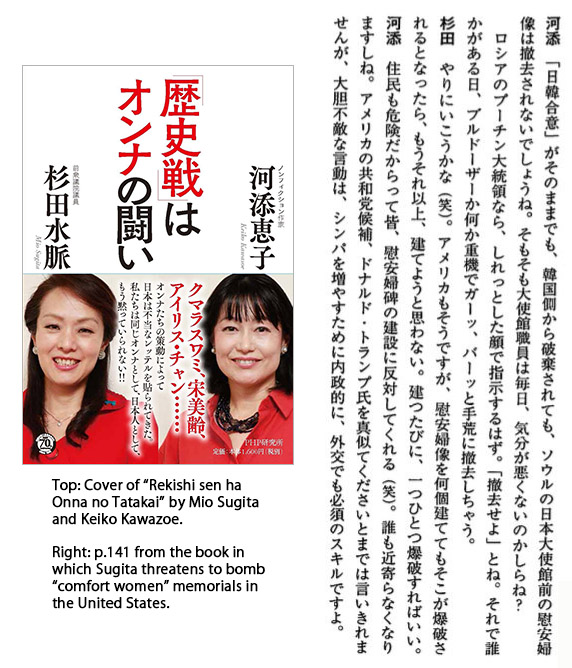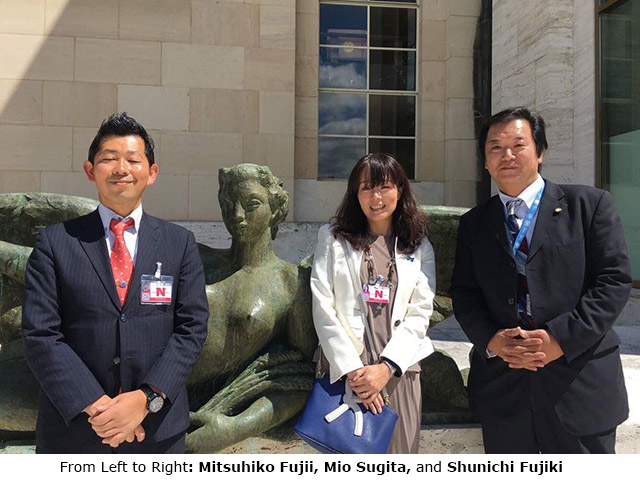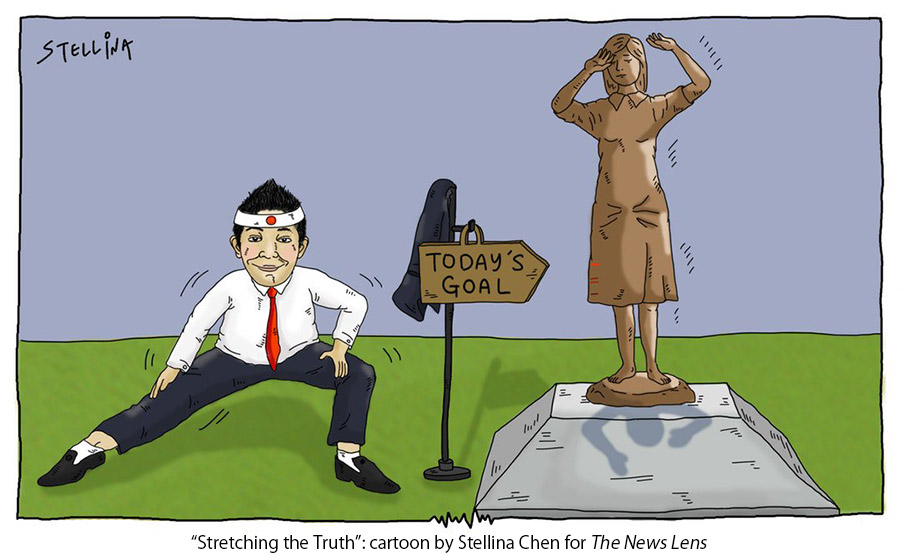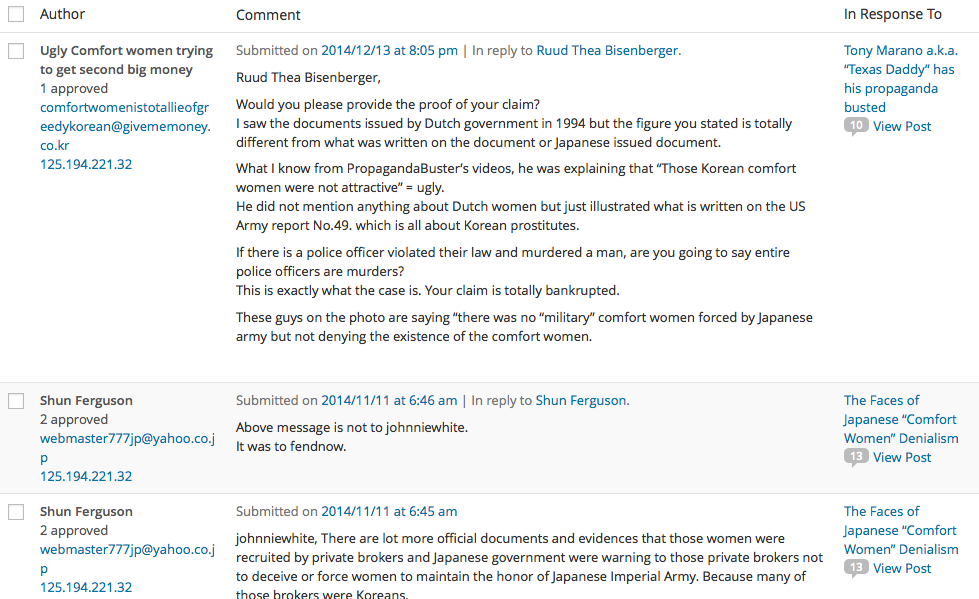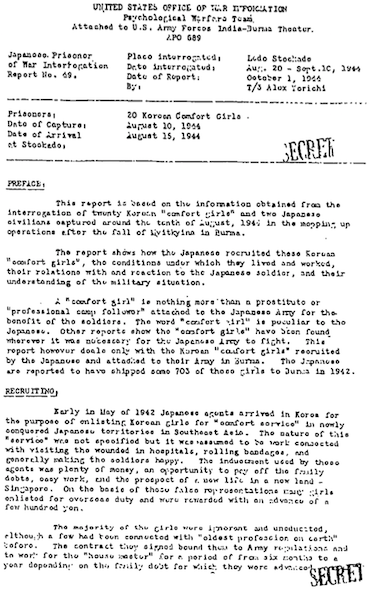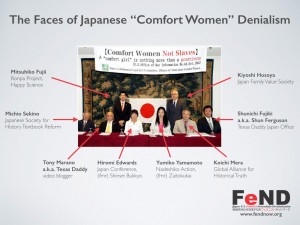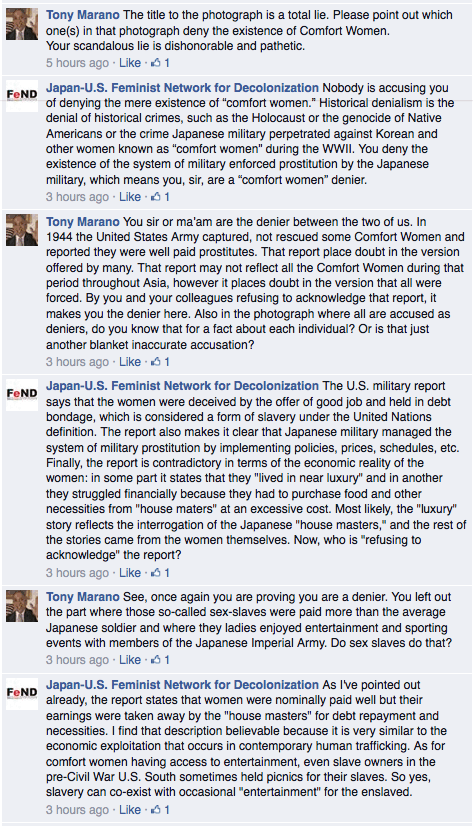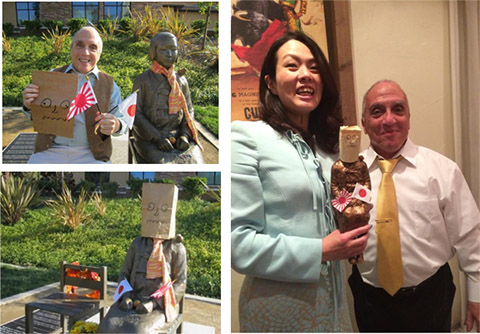In September 2018, far-right Japanese nationalist Mitsuhiko Fujii made international headlines when he was caught on a surveillance camera appearing to kick a recently enacted statue dedicated to victims and survivors of Japanese military “comfort women” system in Tainan, Taiwan.
Fujii, who directs comfort women denialist organization Rompa Project (a front group for Happy Science) was visiting Tainan as a representative of the Alliance for Truth about Comfort Women to demand Taiwanese officials to take down the memorial.
When surveillance camera footage of Fujii kicking the statue surfaced, Fujii’s allies such as Shunichi Fujiki and Toshiko Hasumi took to the Facebook to claim that recordings were doctored by pro-Chinese operatives in Taiwan to drive a wedge between Japan and Taiwan. Alliance for Truth about Comfort Women initially posted a statement “protesting” the “doctored footages,” pledging to have the video analyzed by experts, but it quickly deleted the statement, replacing with an announcement that Fujii has resigned his post as a board member of the Alliance.
The surveillance footage also shows the presence of an apparent accomplice, who is seen holding a camera to capture Fujii’s feat as he repeatedly raised his foot against the statue. The identity of the accomplice is unknown, but is presumed to be another member of the Alliance.
This setup is reminiscent of how Fujii along with fellow history deniers Fujiki and Tony Marano staged a photo shoot at the site of another comfort women memorial in Glendale, California in 2014 with a paper bag covering the head of the statue, commenting that comfort women’s faces were too ugly to be shown. Later, Fujiki bragged that he had staged the photo to intentionally inflame Koreans and other Asians to blow it into international news, thereby attracting the attention of like-minded Japanese nationalists.
Similarly in 2017, Marano traveled to Brookhaven, Georgia for a photo op with a comfort women statue placed in the town’s public park with cash on the statue’s lap to make a point about comfort women being “highly paid, willing prostitutes” as history revisionists often say, instead of victims of military sexual slavery.
Fujii himself wrote the storyline for and produced a propaganda comic strip titled “The Facts,” which ended with a bear mascot surfing on a shark to the U.S. to demolish a comfort women memorial in Glendale. Please don’t ask us to explain why the bear is depicted crossing the Atlantic to travel from Japan to the U.S.: maybe they believe in geographical revisionism as well as historical revisionism.
The desire to physically attack and destroy statues representing and honoring the victims of Japanese military “comfort women” system appears widespread among far-right nationalist leaders. In 2016, parliamentary member (who was temporarily out of office at the time) Mio Sugita published a book in which she advocated for “bombing” comfort women memorials in the U.S. and beyond. Sugita wrote: “Once people realized that comfort women memorials would be bombed no matter how many they build, they will not think about building another one. We should bomb every single memorial as it is built.”
Sugita had lost her parliamentary seat in late 2014 and regained it in 2017. While she was out of office, she frequently joined Fujii and Fujiki to travel to various United Nations meetings in Geneva and in New York City as part of the Alliance for Truth about Comfort Women. Her return to political office has apparently emboldened Fujii to continue to attack comfort women memorials, both literally and figuratively.
Fujii’s assault on the Taiwanese statue took place following the reports of repeated vandalism of another comfort women memorial in San Francisco ahead of its first anniversary. According to CGTN, “paint was splattered on the statue and the grandmother’s eyes were painted white, while the panel that bears the description of the statue was scratched up at least four times.”
It is not yet known who is responsible for the vandalism in San Francisco or even if it was politically motivated, but attacks on statues around the world–and on the dignity of victims and survivors and on historical memories–appear rampant at the moment. We need to understand Fujii’s behavior not as an isolated act of idiocy, but part of a larger ongoing pattern of assaults on and disrespect for women (and others, for that matter) who have spoken out and are speaking out about their experiences of sexual violence.

